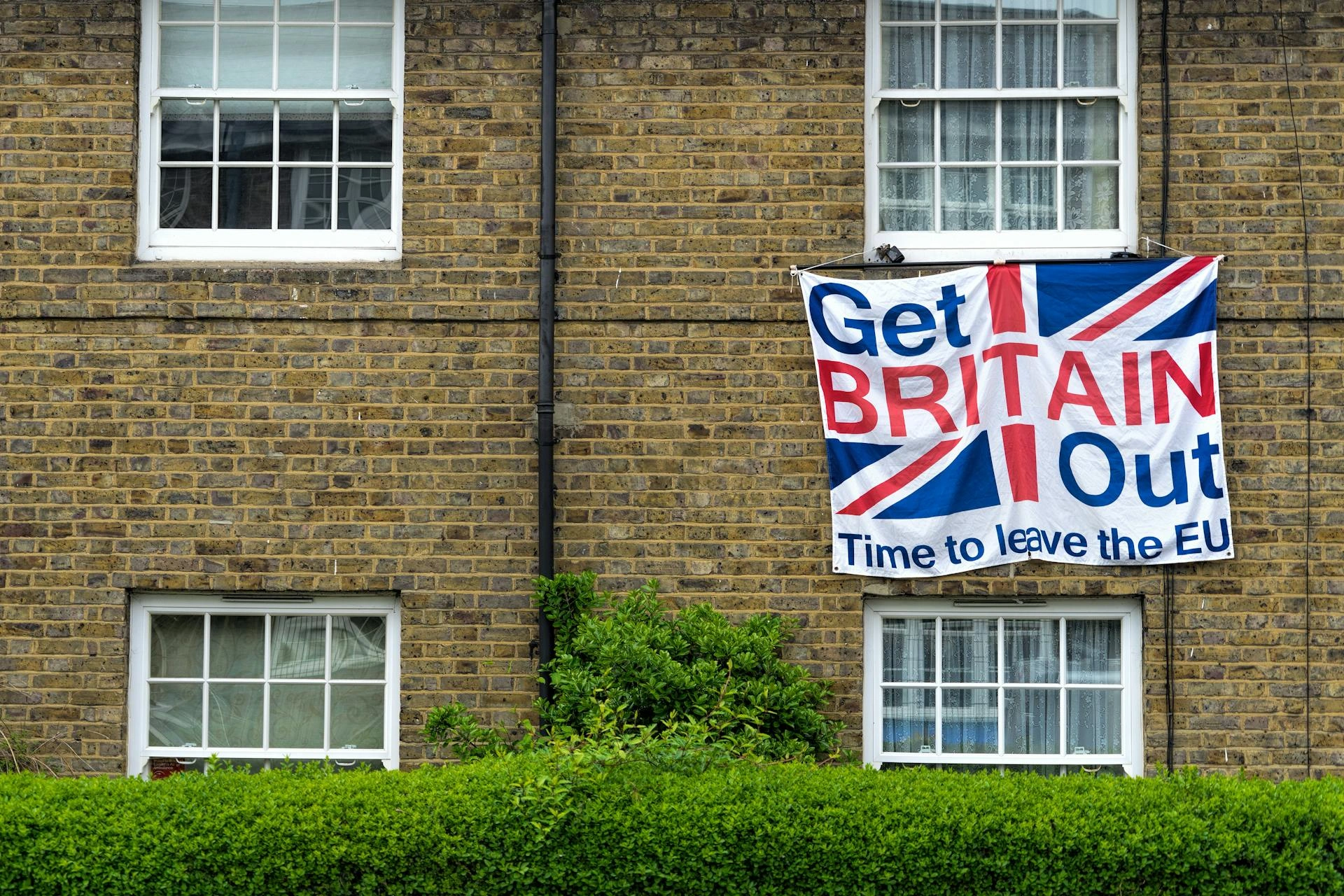Brexit still hitting poorest hardest as food costs rise and mental health worsens

John E. Kaye
- Published
- News

Low-income families, migrants, young adults and small businesses remain the most negatively affected groups five years after the UK left the EU, with household budgets and wellbeing deteriorating
Poorer households are bearing the heaviest strain from Brexit, with essential goods absorbing a larger share of income and rising food import costs feeding directly into weekly spending, new research reveals.
Migrants, small firms and younger adults are also experiencing sustained pressure, five years after the UK’s withdrawal.
Trade agreements with Australia, New Zealand and India have proven inconsequential in compensating for reduced commerce with the EU.
The findings form part of a post-Brexit audit authored by Iain Begg, Professorial Research Fellow at the European Institute, London School of Economics and Political Science.
Its data, published yesterday, indicates that the fallout has been more severe in Britain than in Europe, although overlapping crises such as the pandemic and the cost-of-living surge complicate precise measurement.
Tensions have surfaced within families where partners hold different nationalities, particularly over decisions on whether to apply for settled status.
There is also evidence of psychological strain: a 2022 analysis of UK Household Longitudinal Survey data links the referendum to worsening mental health among Remain voters, most notably among men, 31–46-year-olds and individuals with higher educational attainment.
Despite the promise of greater independence, many EU rules have been carried over into UK law, while proposals for ongoing dynamic alignment have divided opinion, with unease in Northern Ireland over the risk of divergence affecting the Union.
According to Begg, the UK-EU Summit in May 2025 represented a reset in relations, with open signals towards strengthening cooperation on the economy, security, immigration and climate policy.
“In all these respects, the future of the UK-EU relationship remains crucial to the interests of both sides,” he said.
READ MORE: ‘UK-EU trade deal: what’s in the Brexit reset agreement?‘. The UK government has confirmed a new agreement with the European Union “to support British businesses, back British jobs, and put more money in people’s pockets”.
Do you have news to share or expertise to contribute? The European welcomes insights from business leaders and sector specialists. Get in touch with our editorial team to find out more.
Main image: Johannes Plenio/Pexels
RECENT ARTICLES
-
 Hornby sells iconic British slot-car brand Scalextric for £20m
Hornby sells iconic British slot-car brand Scalextric for £20m -
 WPSL targets £16m-plus in global sponsorship drive with five-year SGI partnership
WPSL targets £16m-plus in global sponsorship drive with five-year SGI partnership -
 Dubai office values reportedly double to AED 13.1bn amid supply shortfall
Dubai office values reportedly double to AED 13.1bn amid supply shortfall -
 €60m Lisbon golf-resort scheme tests depth of Portugal’s upper-tier housing demand
€60m Lisbon golf-resort scheme tests depth of Portugal’s upper-tier housing demand -
 2026 Winter Olympics close in Verona as Norway dominates medal table
2026 Winter Olympics close in Verona as Norway dominates medal table -
 Europe’s leading defence powers launch joint drone and autonomous systems programme
Europe’s leading defence powers launch joint drone and autonomous systems programme -
 Euro-zone business activity accelerates as manufacturing returns to expansion
Euro-zone business activity accelerates as manufacturing returns to expansion -
 Deepfake celebrity ads drive new wave of investment scams
Deepfake celebrity ads drive new wave of investment scams -
 WATCH: Red Bull pilot lands plane on moving freight train in aviation first
WATCH: Red Bull pilot lands plane on moving freight train in aviation first -
 Europe eyes Australia-style social media crackdown for children
Europe eyes Australia-style social media crackdown for children -
 These European hotels have just been named Five-Star in Forbes Travel Guide’s 2026 awards
These European hotels have just been named Five-Star in Forbes Travel Guide’s 2026 awards -
 McDonald’s Valentine’s ‘McNugget Caviar’ giveaway sells out within minutes
McDonald’s Valentine’s ‘McNugget Caviar’ giveaway sells out within minutes -
 Europe opens NanoIC pilot line to design the computer chips of the 2030s
Europe opens NanoIC pilot line to design the computer chips of the 2030s -
 Zanzibar’s tourism boom ‘exposes new investment opportunities beyond hotels’
Zanzibar’s tourism boom ‘exposes new investment opportunities beyond hotels’ -
 Gen Z set to make up 34% of global workforce by 2034, new report says
Gen Z set to make up 34% of global workforce by 2034, new report says -
 The ideas and discoveries reshaping our future: Science Matters Volume 3, out now
The ideas and discoveries reshaping our future: Science Matters Volume 3, out now -
 Lasers finally unlock mystery of Charles Darwin’s specimen jars
Lasers finally unlock mystery of Charles Darwin’s specimen jars -
 Strong ESG records help firms take R&D global, study finds
Strong ESG records help firms take R&D global, study finds -
 European Commission issues new cancer prevention guidance as EU records 2.7m cases in a year
European Commission issues new cancer prevention guidance as EU records 2.7m cases in a year -
 Artemis II set to carry astronauts around the Moon for first time in 50 years
Artemis II set to carry astronauts around the Moon for first time in 50 years -
 Meet the AI-powered robot that can sort, load and run your laundry on its own
Meet the AI-powered robot that can sort, load and run your laundry on its own -
 Wingsuit skydivers blast through world’s tallest hotel at 124mph in Dubai stunt
Wingsuit skydivers blast through world’s tallest hotel at 124mph in Dubai stunt -
 Centrum Air to launch first European route with Tashkent–Frankfurt flights
Centrum Air to launch first European route with Tashkent–Frankfurt flights -
 UK organisations still falling short on GDPR compliance, benchmark report finds
UK organisations still falling short on GDPR compliance, benchmark report finds -
 Stanley Johnson appears on Ugandan national television during visit highlighting wildlife and conservation ties
Stanley Johnson appears on Ugandan national television during visit highlighting wildlife and conservation ties



























